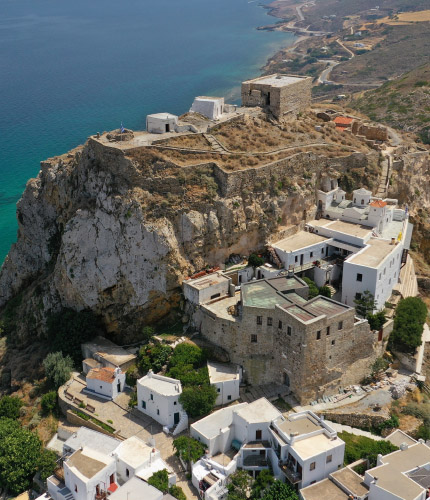The history of Skyros begins in the Neolithic era. According to Greek mythology, Achilles was hidden on this island by his mother Thetis, since she was afraid that he would die if he participated in the Trojan war. Thetis asked for the help of Lykomedes, the king of the island, who kept Achilles in his own castle. But Achilles fell in love with Lykomedes' daughter, Didameia, who gave birth to a son, Pyrros. Odysseus, who knew that the Troy campaign would never succeed without Achilles, devised a cunning plan and managed to bring Achilles to Troy. As predicted, Achilles died in Troy, and now it was Pyrros who had to bring the victory. Ulysses also managed to bring him to Troy, where he fought bravely. The island of Skyros has known many rulers and cultures during its tenure so far. The Pelasgians were the first inhabitants of Skyros and the walls they built were the foundations for the following colonists. Around 475 BC, Cimon conquered Skyros and divided the land between the Athenian aristocrats. Skyros was controlled by Athens for almost 400 years, while in 192 BC the Roman imperial forces managed to take control of the island. Skyros changed hands again in 1204 when the Crusaders occupied Constantinople and the island passed into Venetian rule. In the late 14th century, Skyros was ruled by the Turks and now managed to proclaim its independence in 1829 AD.











